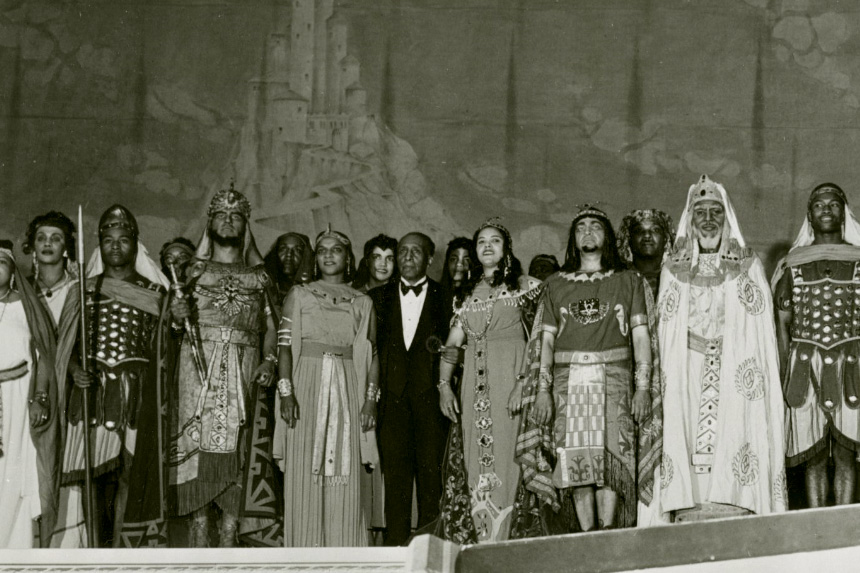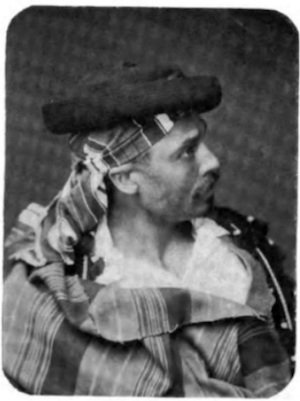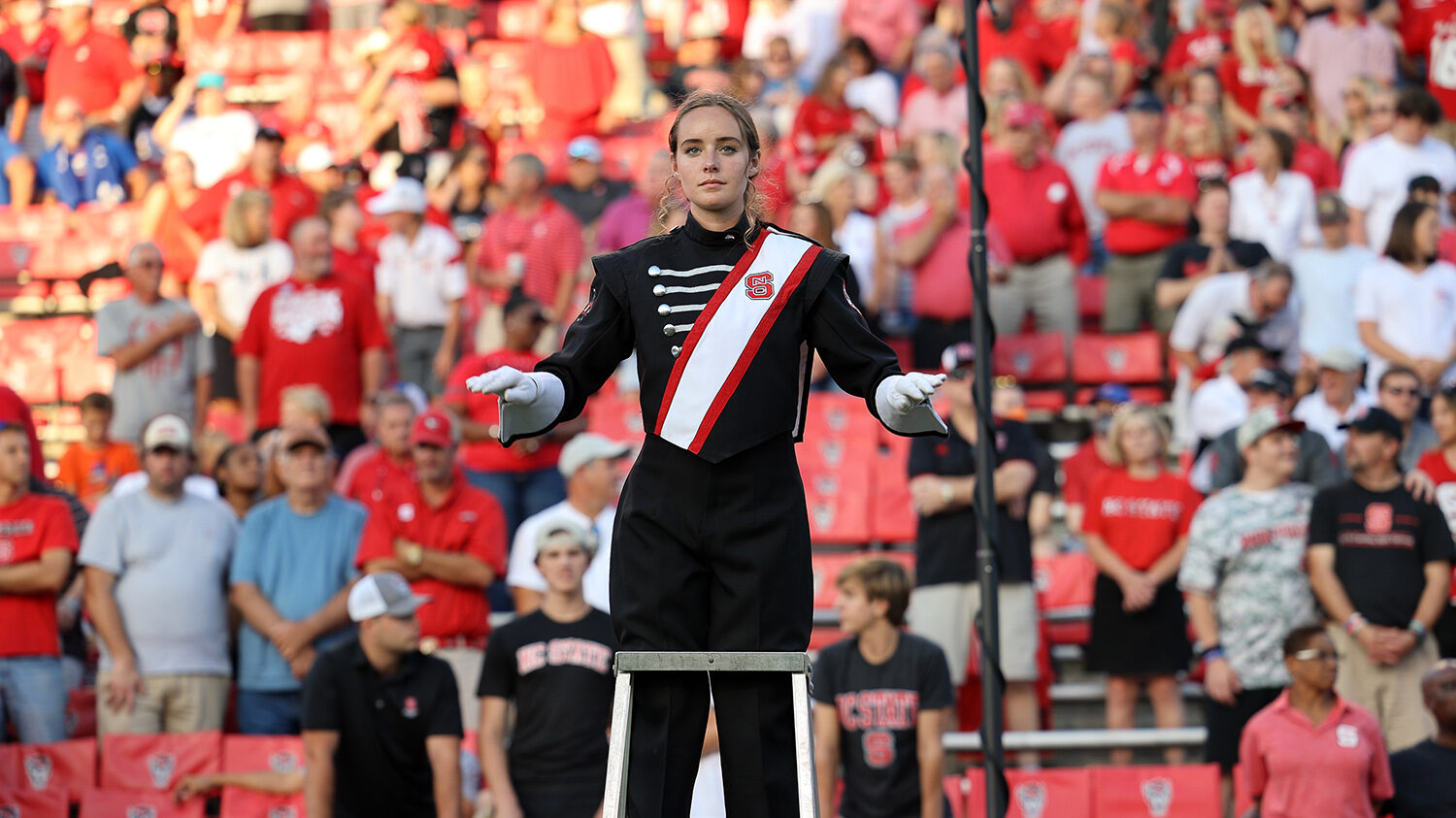Shining light on Black opera

Musicology lecturer Kristen Turner joins the working team for the Black Opera Research Network, an international organization supporting scholars and creators of Black opera.
Musicology lecturer Kristen Turner is a scholar who enjoys working on a variety of projects. She is currently writing two books, has several journal publications that came out recently, hosts a monthly podcast, and is co-editing part of a massive revision of the esteemed Grove Music dictionary.
In addition, she also serves on the working team of the Black Opera Research Network (BORN), a new organization founded to serve as a resource for scholars studying topics relating to opera and its various connections to Blackness, Black creators or Black experiences.
Turner said she was invited to join the working team in part due to her research centered on Black American musicians who worked in opera at the turn of the 20th century, both in and outside of opera companies. At that time, due to segregation, there were few if any full-time employment opportunities for Black opera singers in traditional opera companies. Turner has published an article about a Black opera singer named Theodore Drury who founded his own opera company, and she also conducted research on Drury for her dissertation and other public musicology work over the years.
The birth of BORN
BORN was established by Naomi André, a professor in the Department of Afroamerican and African Studies at the University of Michigan; Innocentia J. Mhlambi, associate professor in the Department of African Languages at the University of the Witwatersrand (Johannesburg, South Africa); Donato Somma, senior lecturer at the University of the Witwatersrand; and Hilde Roos, general manager of Africa Open Institute for Music, Research and Innovation at Stellenbosch University (Stellenbosch, South Africa).

(TOP PHOTO) Harlem Renaissance composer Henry Lawrence Freeman, America’s first Black opera composer, is pictured in 1947 with the cast of his opera The Martyr which he directed at Carnegie Hall. H. Lawrence Freeman Collection, Rare Book & Manuscript Library, Columbia University.
André is a powerhouse scholar in the field of Black opera. Her award-winning book, Black Opera: History, Power, Engagement, was published in 2018. According to André during the network’s first virtual public conversation on August 21, 2020, “We had all read and admired each other’s work about operatic activities in South Africa and thought that we’d like to start some sort of research collaboration. We then realised that a network that could be a resource for scholars would be great as opera in South Africa has been getting more attention since the dismantling of apartheid in 1994.”
André continued to say that, from an early point as they began inviting new scholars to join the working team, they knew they did not want to limit their scope to only focus on opera in South Africa.
“Instead, we have further explored this construction of ‘Black Opera’ to be capacious, and to include opera that had connections to Blackness—through Black composers, librettists, performers, and production teams,” André said to the audience listening online. “We are interested in operas that are on Black topics and provide a more informed expression of Black experiences that counters negative stereotypes that extend back to minstrelsy (and beyond).”
That initial online public conversation featured a panel of Black opera singers, moderated by André, who discussed Black experiences in opera in South Africa, Europe and the United States.
“There’s a lot of white supremacy in opera,” said Turner. “It’s a hard space for Black opera singers to function in, and certainly Black composers as well. Classical music is like that, in general. Opera is so focused on the body and what you look like, and most operas are set in a European setting. So there’s a lot of ‘we can’t have Black opera singers.’ And then Black opera singers get pigeonholed in certain very specific roles, either because they’re supposed to be Black characters or…there are a few roles that have gotten stereotyped for Black singers. So it’s not great.
“The network is, in part, trying to bring those issues to light. Not that they’re a secret, but you need a lot of organizations calling that kind of stuff out, so that’s part of the role of [BORN].”
Challenging the status quo
Turner, who runs BORN’s Twitter account, sees advocacy as a core part of BORN’s mission. “I think in some ways it’s possible that, depending on how it develops, that one role we can play is sort of the conscience of opera,” she said. “We’re pointing out, here are these amazing small opera companies that are producing music by Black composers, operas with Black librettists or Black subjects who are all-Black companies or mostly-Black companies. We can support that work.”
At the same time, they can use their platform to call out opera companies and singers who perform in blackface, a problem that endures today. “We definitely see ourselves as not just amplifying the good work other people are doing but pointing out when opera companies are perpetuating racist stuff,” said Turner.
Opera developed in Italy in the early 1600s, and was performed in the courts of the white nobility. It is an inherently expensive art form to produce, so it moved to public performance more quickly than other forms of classical music. Many early operas told stories related to Greek mythology or ancient European history, and then they began to be used as a sort of propaganda, to uphold the power of the state.
“All the operas around Louis XIV’s court would portray the ruler as Louis XIV,” said Turner. “So there’s always been this kind of close connection between royal politics and opera even when, the operas themselves, you could buy a ticket to them in a way that you couldn’t in other kinds of classical music.”
More than 250 years after the first operas were performed in Italy, Il Guarany (1870) became the first hit on European stages written by a composer of color—Antônio Carlos Gomes, a Brazilian who lived in Italy at the end of the nineteenth century. Turner notes that it was surely not the first opera to be written by a composer of color, but it was the first to receive a lot of public performances, though it quickly fell out of favor and is no longer produced with any regularity.
“But you do get a lot of exoticized representations of people of color [in earlier operas],” said Turner. “There are operas going back into the 1700s that are about colonization, so they’ll have indigenous characters or non-white characters of some kind, but it’s about a colony. It’s a European perspective on a colony. For instance, you get these Aztec characters which don’t have any kind of basis in reality. It’s very much a fantasy of Europeans about what indigenous people might be like.”
In the case of Aida—an opera by the Italian composer Giuseppe Verdi which was commissioned by Cairo’s Khedivial Opera House and premiered in 1871—despite its Egyptian setting, plotline and characters, the opera does not draw upon Egyptian musical traditions. It follows the conventions of European opera and portrays a European view of what life was like in Egypt.
Progress and challenges for Black opera and BORN
Turner said there began to be more composers and librettists of color beginning in the 20th century. She noted examples of operas written about Black characters and topics that are germane to Black life in some way. Margaret Garner is an opera composed by Richard Danielpour with a libretto by Toni Morrison, about a self-emancipating enslaved woman who killed her children upon her capture rather than have them go back into slavery. There’s an opera titled X, The Life and Times of Malcolm X that was written in the 1980s by a Black composer named Anthony Davis, who won the Pulitzer Prize for music for his most recent opera The Central Park Five in 2020.
The challenge that all new operas face is the challenge of being performed at all. “All operas have a real uphill climb to be performed, because the 19th century repertoires are so dominant,” said Turner. “[Black opera composers] have sort of a double hill to climb: you have the hill to climb to be performed at all, by all new composers, and then a lot of companies just don’t perform Black operas or operas with Black characters so it’s doubly difficult.”
There are Black opera companies in the United States, such as OperaCreole and Harlem Opera, but they are small companies and often go more than a year between productions as they try to raise the funds to produce an opera. “[Operas] are super expensive,” said Turner. “Europe has more underwriting of opera than America does, except for a few large opera companies. They’re always struggling, and even the Met is struggling now. COVID-19 has been particularly difficult for opera. I just don’t know what’s going to happen going forward; nobody does.”
Despite this uncertainty, BORN is committed to supporting scholarship in the field of Black opera. One upcoming project that the group has in development is an event to highlight the work of a Black opera singer and a Black emerging scholar who are working on a database of operas that either have Black characters, are by Black composers, or that have another Black opera connection. The project could make it easier for opera companies to find and perform these works, which in many cases were unpublished and have to be tracked down in archives.
Turner, who is white, acknowledges that one shortcoming that BORN needs to address is the racial makeup of the working team, whose members are predominately white. Turner notes that she’d be happy to step back to allow scholars from minoritized communities to join the working team, but they have struggled to find Black scholars working on Black opera.
André, who self-identified as African American during BORN’s first online event, noted this issue in her opening remarks. “We are painfully aware that we do not have enough people of color on our working team,” she said. “Since we started as a group of scholars, we have to acknowledge the dearth of people of color who have access to getting into the ‘opera pipeline’ and who are nearly invisible in leading roles around opera, as singers, as administrators, as scholars, as board members, as trustees…you get the picture. We are working to fix this—more generally in the world, and very locally within our group.”
BORN has several other events in the works, including discussions on Africa and the diaspora on the contemporary opera stage, and the operatic enterprise and the racialized politics of place. To learn more about BORN, visit blackoperaresearch.net. ♫
Sources:
Black Opera Research Network
Long Beach Opera
The New Yorker
San Francisco Classical Voice
The Saturday Evening Post
Utah Opera
- Categories:


